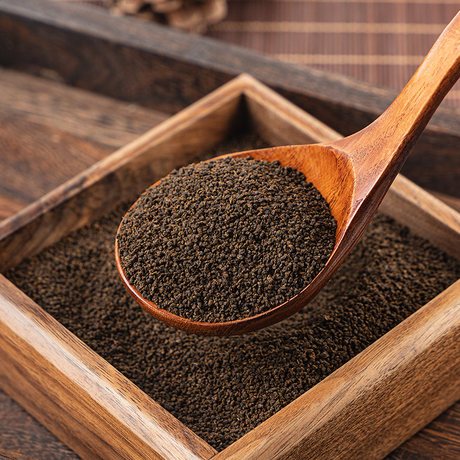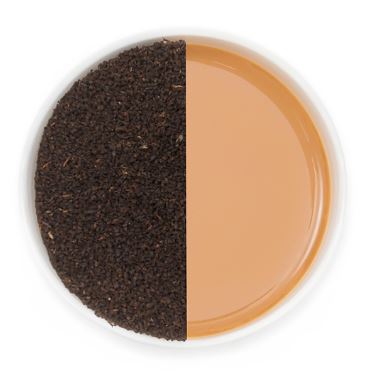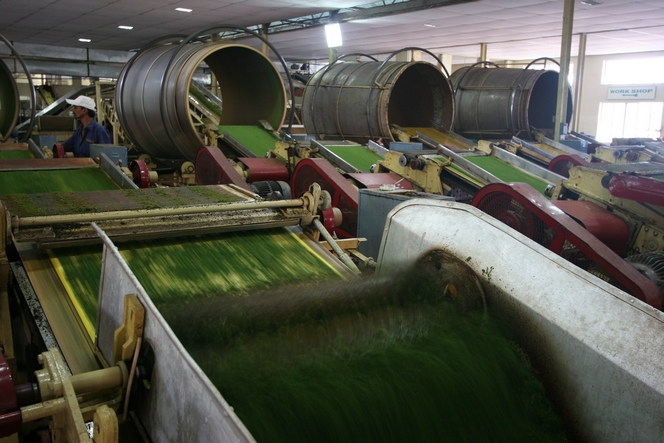Tea production process | after kneading and twisting machine, black broken tea appears, such as how to choose black tea correctly
The kneading and twisting machine is replaced by rotor black broken tea (known as RotOvane machine abroad). This is involved in the wilting / rolling / oxidation sequence. It is the basis for the production of CTC black tea and more and more green tea. It is essentially a tea shredder. It turns the leaves into small particles instead of rolling up the whole leaf.
CTC stands for Crush, Tear, and Curl (sometimes Crush is replaced by Cut, but the result is the same). It was introduced in the 1930s and is now the mainstream of the mass tea market.

It is ideal for making tea bags, using large-leaf tea (mainly in Assam), thicker and lower-grade tea (increasingly common in large lowland farms in Africa, Bangladesh, Indonesia, Sri Lanka and Assam).
The tea is sliced with a blade and crushed or bruised to allow the juice to flow. Then, it is rolled by the rotating blades of the red tea machine to form very small pellets of the same size.
The formation of particles began to be fermented and oxidized at an early stage. This makes its tea darker in color and stronger in flavor. It takes 3-4 minutes for the original leaf black tea to show its taste in boiling point or slightly below boiling point water. The CTC tea bag takes only half a minute to brew out a cup of black tea with strong flavor.

CTC has changed the whole tea economy. It turns it into a convenience. Now it has a market share of more than 80%. Within its scope, this is acceptable. These restrictions are very strict. It's the equivalent of making a salad with tomatoes. The tomatoes in the supermarket are planted all year round, picked by machines, cultivated for durability and yield, refrigerated, artificially colored and ripe. It lacks the carotenoid sugars of mature grape varieties and comes from large farms that use a lot of pesticides.
Suppose you don't know that this tomato production system is not your only option, that there are family heirlooms such as Cherokee purple and pink brandy on the farmers' market, or that planting seeds deep in organic compost produces deeper roots.
In today's tea world, most people who drink tea bags have no idea that there are so many choices. The combination of CTC and machine picking-picking, pruning and scratching, CTC and the computer process control of the entire factory give you the equivalent of supermarket cotton and tomatoes. Farmers' markets and organic produce areas are its balances.
More and more machines will replace labour because it is necessary; just as Jackson played a key role in the survival and prosperity of Assam, the economic situation of the industry is inevitable. This will bring-- and is bringing-- truly cruel social chaos. Once the government ends its policy of not implementing automation, Kenya will face a sharp increase in unemployment.

In Assam, agricultural communities face social chaos: a farm manager and his wife were burned to death at home after months of unpaid wages, and hundreds of people reportedly committed suicide because the farm closed, workers lost food subsidies and hundreds of people committed suicide. This is almost part of the iron law of development: machines expel people.
On a more positive side, just as Jackson's innovation helped tea achieve better quality and a more sustainable future at lower prices, many developments have similar returns. For hundreds of years, the tea supply chain has been primitive, which increases costs, delays, waste and deterioration. Vacuum packaging, intelligent machines with classification and classification visualization and scanning, automated storage management, and online integration from shrubs to cups are changing that. Cloning and DNA typing are creating a new generation of tea that is superior in quality and value.
When you buy tea, remember to go to the farmer's market. Pay attention to the influence of the machine; in particular, don't be fooled by fancy packaging into thinking that CTC and its variants of tea powder and fans are the lowest quality you can put in pots and cups. You don't have to stay in the supermarket. Your choice. While it is clear that automated agribusiness will continue to prevail, the tradition of Jackson-style machines to enhance the workforce still has a place.
Important Notice :
前街咖啡 FrontStreet Coffee has moved to new addredd:
FrontStreet Coffee Address: 315,Donghua East Road,GuangZhou
Tel:020 38364473
- Prev

Black tea production process | how is black tea produced? History and advantages of tea mill
In addition to being a flashy title for Britain, as in Britannia Rules the Waves, Britannia is also a trade name, referring to a series of machines invented by the young inventor William Jackson in the 1870s. His tea mill was the main innovation that directly changed Assam.
- Next

2021 what is the new drink of Starbucks recently? is there any Starbucks beer-flavored latte?
Which dark drink does everyone remember most about Starbucks? I don't know if you remember when Starbucks combined the addictive elements of beer and coffee in 2018. The picture above shows three new drinks launched by Starbucks in October 2018. Looking back at that time, people's brains were very bright, and there were all kinds of newly developed (dark cuisine) delicacies, such as red oil and chili ice.
Related
- What is the difference between Indonesian Sumatra Mantinin coffee and gold Mantinin? How to distinguish between real and fake golden Mantelin coffee?
- What does bypass mean in coffee? Why can hand-brewed coffee and water make it better?
- Unexpected! Ruixing Telunsu lattes use a smoothie machine to foam milk?!
- % Arabia's first store in Henan opens into the village?! Netizen: Thought it was P's
- Does an authentic standard mocha coffee recipe use chocolate sauce or powder? Mocha Latte/Dirty Coffee/Salty Mocha Coffee Recipe Share!
- What is the difference between Vietnam egg coffee and Norway egg coffee? Hand-brewed single product coffee filter paper filter cloth filter flat solution!
- What is the difference between sun-cured and honey-treated coffee? What are the differences in the flavor characteristics of sun-honey coffee?
- How to make Italian latte! How much milk does a standard latte use/what should the ratio of coffee to milk be?
- How to make butter American/butter latte/butter Dirty coffee? Is hand-brewed coffee good with butter?
- Is Dirty the cold version of Australian White? What is the difference between dirty coffee/decent coffee and Australian white espresso?

